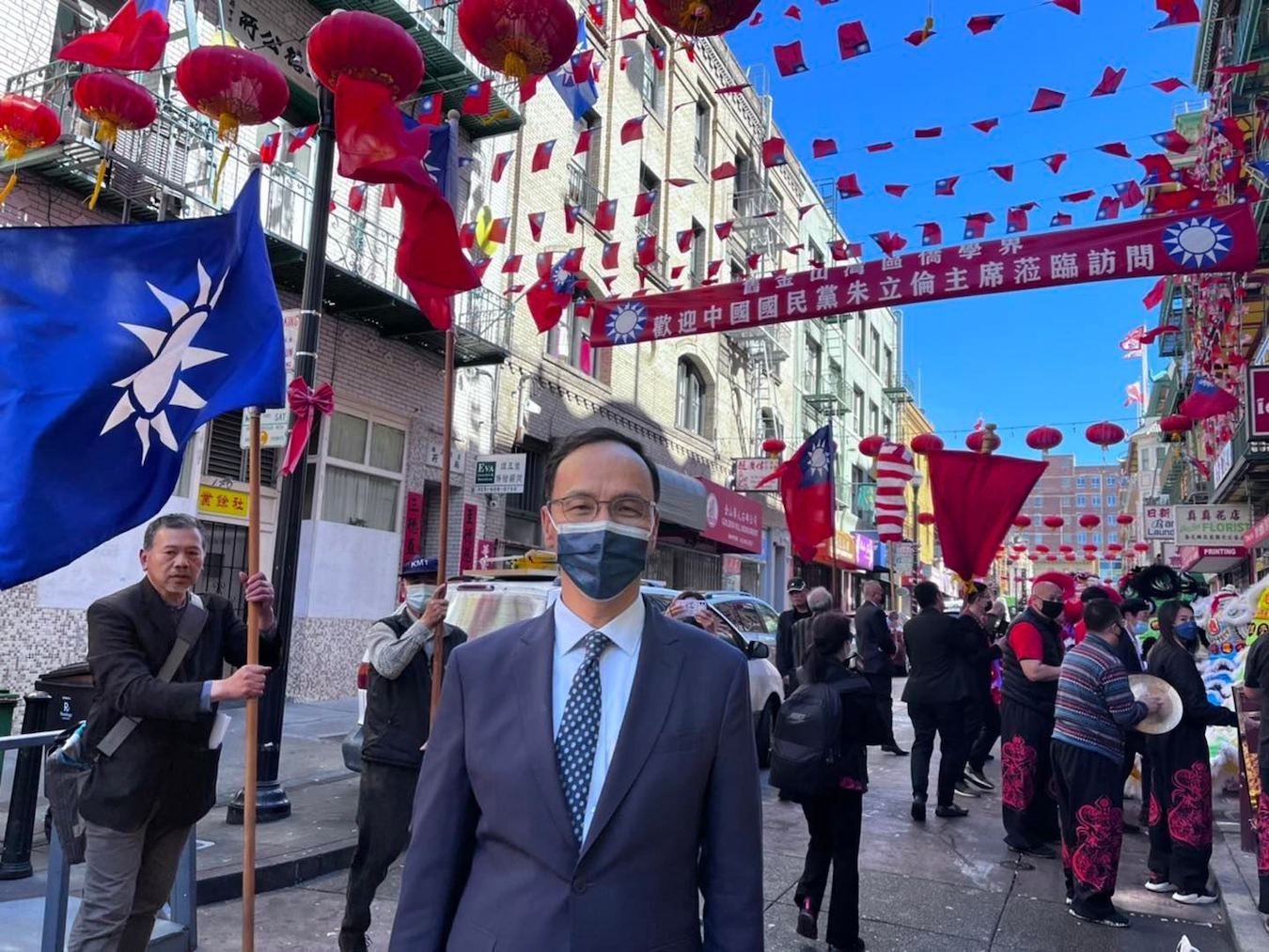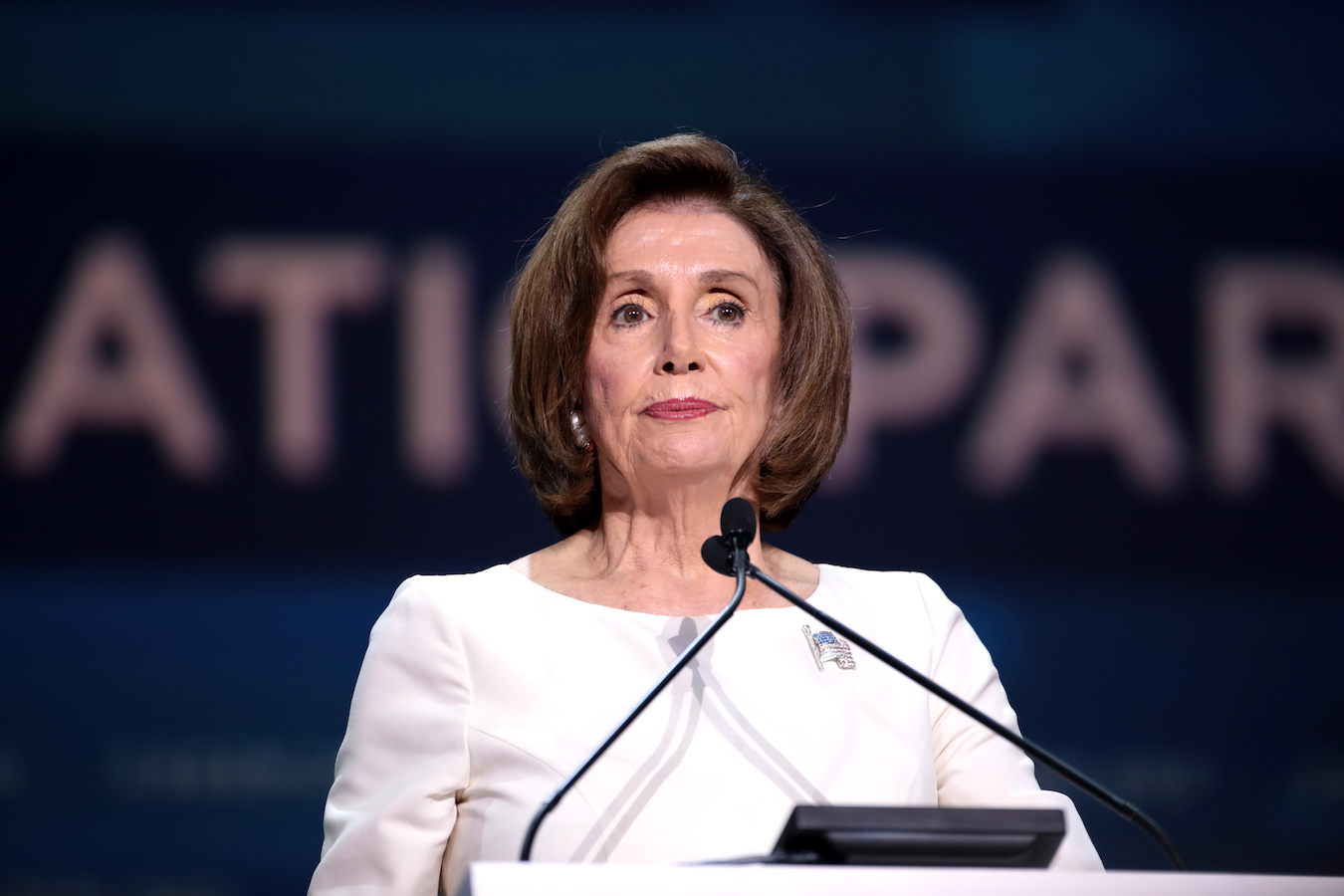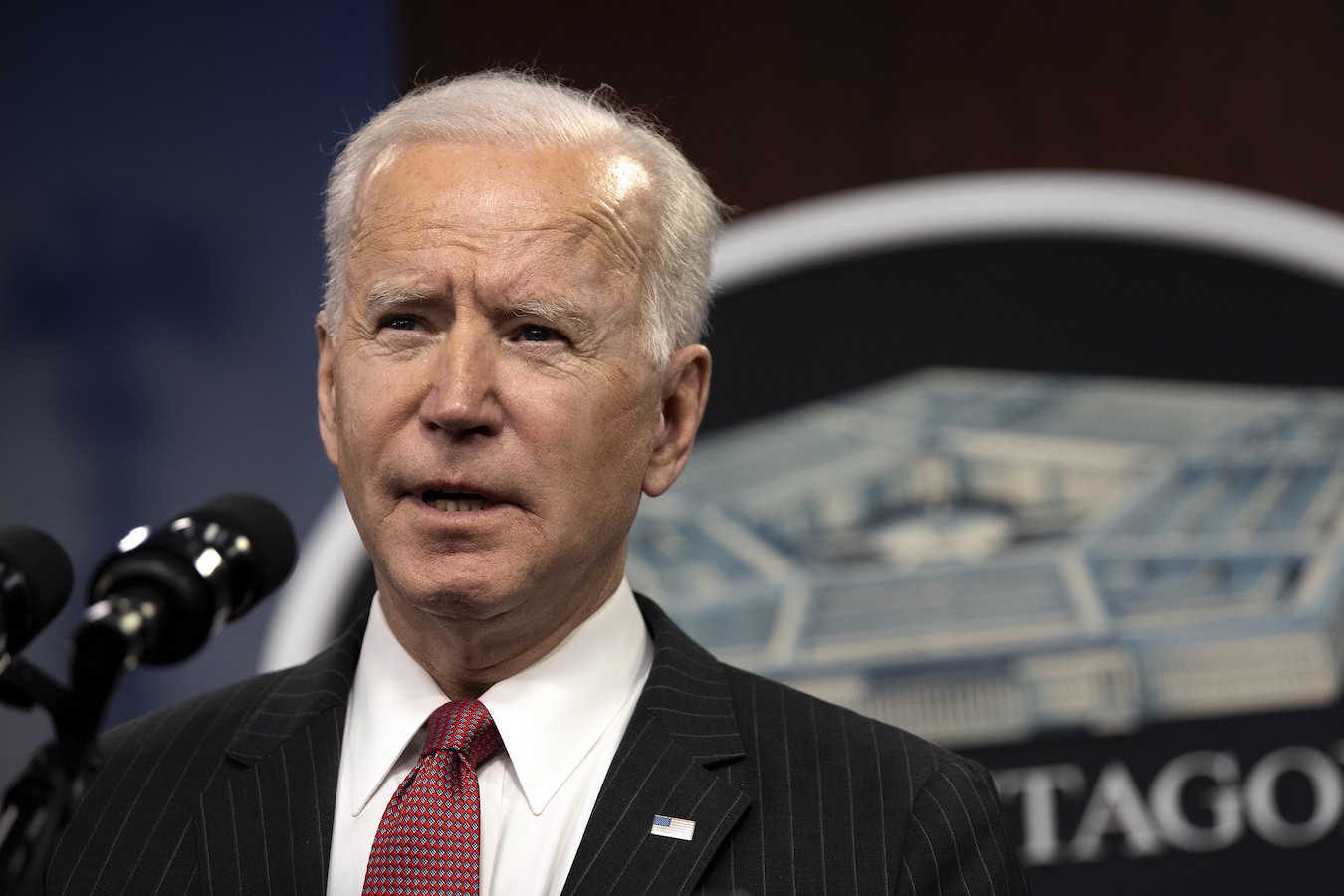by Brian Hioe
語言:
English
Photo Credit: Screenshot
AMERICAN LEFTIST magazine Jacobin continues to plumb the depths of bad writing on Taiwan that does not bother to consult Taiwanese voices about their own future, with a recent article by Chicago-based writer Branko Marcetic. Instead of anything like, say, speaking to Taiwanese to see what they think of the odds of conflict with China are, what one instead sees is the usual insularity of western leftists who are more concerned with projecting the specter of American empire onto the non-western world to self-flagellate about themselves rather than finding pragmatic solutions to avoid conflict.
The article in question is primarily concerned with cable news television, which it sees as dialing up tensions in preparation for a war with China. And perhaps this is right, with US television news media often hardly proving critical of the American government, and often just regurgitating the usual talking points of the state. In this, Marcetic sees continuity between both purportedly liberal and conservative outlets.
Yet it is of some hilarity when Marcetic turns toward trying to claim that warmongering rhetoric even takes place in progressive outlets. In particular, Marcetic does so by honing in on an exchange between myself and Quincy Institute East Asia program director Michael Swaine on Democracy Now!
The exchange in question
In response to Swaine trying to cite what he claimed to be US agreements between the US and China that the US was violating, I responded, “Why we are talking about a fifty-year-old agreement without talking about the wishes of the Taiwanese people in the slightest, justifying that the present actions China takes are somehow justified towards Taiwan?”
In reality, there is no policy consensus between the US and China on Taiwan, as a result of which Swaine and others are frequently mistaken when they claim there is some agreement with China that the US is violating. China frequently tries to conflate its own One China Principle with the US One China Policy in order to frame US actions on Taiwan as a violation of prior agreements. Neither Swaine nor Marcetic seem to be aware of this.
But either way, during the program, I had previously highlighted the question of where Taiwanese voices were in a conversation about their fates, as it would not be the US that was immediately in the line of fire in the event of a US-China conflict but Taiwan. Yet Swaine’s next response was to be dismissive of what Taiwanese have to say.
“Well, the point here is not so much what the Taiwanese themselves are saying in this regard. What I was just saying was about the United States” [Emphasis mine]. Swaine’s response proved a revealing moment about how the American left simply does not care what Taiwanese think about their future, or how they understand threats directed at them, only what the US does or thinks.
For Marcetic, this is simply Swaine “attempting to explain the political and historical context of the One China policy and its role in preventing US-Chinese conflict.” But as Marcetic suggests that Democracy Now! has also jumped on the warmonger bandwagon by featuring a conversation with me, apparently, Marcetic also sees just simply trying to raise the issue of the exclusion of Taiwanese voices from a conversation about their future as being hawkishness. This proves rather amusing when Swaine’s proposed solutions to US-China tensions include trying to get Henry Kissinger of all people, to act as an intermediary–and somehow Marcetic seems to accept Swaine’s views as the correct left position.
Yet further hilarious is that Marcetic then attempts to disprove me by ventriloquizing Taiwanese, claiming that my views do not represent that of all Taiwanese. Obviously not. But he states:
“In reality, Taiwan’s status as a democracy means that its citizens don’t speak with one voice on foreign policy, and the One China policy has long been a matter of contention in Taiwanese politics. A representative of the opposition Kuomintang party commented that the entire episode is not constructive for either party,’ referring to Taiwan and the United States.”
 KMT chair Eric Chu. Photo credit: Eric Chu/Facebook
KMT chair Eric Chu. Photo credit: Eric Chu/Facebook
First, one wonders when exactly the leftist position is to hold agreements signed between imperial powers as the highest good. It is a foolhardy view to expect that world peace will be secured if we simply convince imperial powers–such as the US and China alike–to abide by the agreements that they signed amongst themselves, which history has never attested to the success of–though this seems to be the view that Marcetic, Swaine, and others take.
But it is likely amusing for any student of East Asian history to see a self-proclaimed American leftist publication quoting the KMT, formerly the right-wing authoritarian party that ruled over Taiwan for decades during the White Terror, killing tens of thousands of leftists, political dissidents, and others before the successful push for democratization–against a contemporary Taiwanese leftist.
Certainly, Taiwanese do not speak with one voice. However, if Marcetic had been attentive to anything about Taiwanese politics in the last ten years, he would note that the KMT has been defeated in most elections of the last decade because of its refusal to swerve from its pro-China views. Consequently, successive KMT chairs such as Johnny Chiang and current chair Eric Chu have wondered aloud about jettisoning the 1992 Consensus and other “One China”-oriented policies, with the view that this is a dead albatross that drags down the party’s electoral chances.
Nevertheless, it proves commonplace for Marcetic, Swaine, or other US-based leftists, to somehow uphold the formerly authoritarian KMT, previously a right-wing US-backed rump regime backed by America to counter China, as the best chance for maintaining peace between the US, China, and Taiwan. If such individuals had bothered to update their understanding of Taiwanese politics to take into account the last decade or so of developments–with the coming of age of a generation of Taiwanese young people that implicitly reject the KMT and identify with Taiwan rather than China–they would know that even if they take this view, the KMT’s electoral viability is low at present. A party with less than 9,000 members under 40 two years ago does not appear to have much of a future.
Whether they like it or not, the KMT’s chances of retaking power are dismal. China’s military drills, in fact, may actually hand the next set of elections to the DPP, because of the KMT’s failure to disassociate itself with Chinese military threats directed at Taiwan. This is something that more often drives the public into support for the DPP than not, as seen in responses to the 2019 Hong Kong protests or a 2019 speech by Xi Jinping in which he vowed that force was still on the table to annex Taiwan.
But instead of updating their views of the world to account for literal decades of world history, these individuals have sometimes preferred to echo KMT propaganda. Sometimes this would be claiming that this young generation of Taiwanese simply has been brainwashed by the ruling DPP and this could change in the future if the KMT were to come back to power, rather than the more basic explanation that Taiwanese young people are aware of the mass detentions of Uyghurs for their religion that takes place in Xinjiang, the harsh political crackdown after the 2019 Hong Kong protests, or China’s ongoing military threats.
Unsurprisingly, Marcetic’s ventriloquism continues into the conclusion. He ends on the point:
“And right now, this is the case just about across the political spectrum, where progressive lawmakers and liberal cable news hosts sound indistinguishable from hard-right military officials who served under Donald Trump and George W. Bush. This is exactly the sort of jingoistic atmosphere that leads countries to sleepwalk into disaster.”
 US Speaker of the House Nancy Pelosi. Photo credit: Gage Skidmore/WikiCommons/CC BY-SA 2.0
US Speaker of the House Nancy Pelosi. Photo credit: Gage Skidmore/WikiCommons/CC BY-SA 2.0
But how exactly are we on the brink of war? One notes that US policymakers and military officials often play up the threat of conflict with China, in order to justify their raison d’etre and the largesse of their budgets. Yet reading between the lines, the Pentagon still recently stated that it does not believe that Taiwan would be invaded in two years.
If Marcetic had bothered to speak to any Taiwanese, he would know that the possibility of a Chinese invasion is far off; China currently lacks the lift capacity to conduct an invasion of Taiwan, that is, it does not have enough vessels to bring enough troops over to Taiwan to conduct a long-term occupation of Taiwan. Chinese military threats have been ongoing for decades, as a result of which Taiwanese have been relatively unfazed by the recent threats, and life goes on as normal in Taiwan. China would also have much to lose from conducting an invasion at this juncture, given the havoc that an invasion would wreak on an economy that was already slowing before COVID-19, as well as that it continues to be hit by rolling lockdowns due to its refusal to deviate from COVID-zero–or the just sheer cost of life for its military, with estimates in the tens, hundreds of thousands of dead.
Indeed, it may be that Marcetic simply knows little about the region. Other articles by Marcetic on the possibility of an invasion including a bizarre interview with Lyle Goldstein in which the two discuss the odds of conflict with China as though this would somehow be a land war, rather than one fought mostly at sea, and in which efforts would be focused on preventing the People’s Liberation Army from ever reaching the shores of Taiwan. It is stranger to note that while Marcetic labels me a hawkish warmonger for simply bringing up that Taiwanese perspectives have been ignored in favor of only discussing the perspectives of imperial powers, he then goes and interviews Goldstein, literally a former professor at the US Naval War College.
Rather than discuss any practical points, such as how the People’s Liberation Army Navy still lags behind the US in terms of capacities, even as it is rapidly making efforts to catch up and how it would face logistical difficulties mounting an invasion, Goldstein and Marcetic simply discuss China’s proximity from Taiwan as though this were the only determinant: “Every point of China is essentially one day’s sail to Taiwan,” says Marcetic. What does this matter if China just doesn’t have enough boats? Or enough boats sufficiently armored that they would make it to shore in the event of an invasion?
What emerges from the interview is that Marcetic and Goldstein share the same unrealistic perception of the potential odds of war with American conservatives, with both suggesting conflict could be imminent and Goldstein warning that the US could possibly be defeated by China in the event of a conflict. Marcetic and Goldstein leap to completely far-flung conclusions, such as suggesting that the US and China could go to nuclear war over Taiwan. Perhaps Marcetic should take his own advice and stop watching sensationalist cable news talk shows?
Again, this is a way in which Marcetic and Goldstein simply have not updated their worldview from the Cold War. Nuclear war is of course not a possibility that has been removed from the chessboard of world geopolitics, but we are very far away from the point of nuclear escalation at present. China’s economic interdependence with Taiwan and its reliance on Taiwanese semiconductors–as well as its economic interdependence with the US–dissuades it from leaping to nuclear war.
 US President Joe Biden. Photo credit: Lisa Fernando/DoD/CC BY 2.0
US President Joe Biden. Photo credit: Lisa Fernando/DoD/CC BY 2.0
One observes that while Marcetic and Goldstein seem to perceive the US policy establishment as homogeneously in favor of ramping up tensions with China, this is not entirely the case, with the Biden administration openly diverging from House Speaker Nancy Pelosi with regards to her recent trip to Taiwan because of the belief that this would be overly escalatory. Escalation is not merely a one-way street, as Marcetic would have it, because of his general failure to actually be attentive in any way to the nuances of regional politics or even how the US establishment is divided on this issue.
Still, one notes that many American leftists affiliated with the anti-war movement often bring up the specter of nuclear war. This probably returns to that leaping to hyperbolic rhetoric seems like the best impetus for drumming up political mobilization, using nuclear war as a mobilizing abstraction. Constantly bringing up nuclear war also allows such leftists to LARP world-historical political significance, centering global struggles in the US to prevent the US from using nuclear arms as having the most global significance, and allowing them to disregard peripheral struggles as insignificant–in this case, even allowing them to justify ignoring the local voices that would be the ones directly facing the threat of military annihilation in the event of a US-China conflict, nuclear or otherwise. Certainly, Marcetic, sitting in Chicago, is not about to be nuked anytime soon, while those of us in Taipei would more directly be in the line of fire from Chinese decapitation strikes.
The way out of a US-China conflict is to find ways to prevent open hostilities from breaking out, while also not compromising on Taiwan’s sovereignty, with both the former and latter proving key. After all, as history goes to show, appeasement hardly ever satisfies rising powers, who are emboldened by their gains to further aggression–and this would almost certainly be the case with Taiwan and China. The proposal to trade off Taiwan to China in order temporarily secure peace not only reflects imperial logic from western leftists, in treating Taiwan as simply a geopolitical chess piece but just would not work. As such, a firm stance must be maintained to prevent China from over-extending its power in a way that could hazard conflict, while also restraining US hawks, and not compromising on maintaining Taiwan’s de facto independence.
To find solutions to this, it proves imperative for western leftists to heed Taiwanese voices. Taiwanese have sought pragmatically to maintain their existing de facto independence for decades while avoiding conflict from China and, being the ones directly in the line of fire. Certainly, they have a more accurate perception of the odds of conflict than western leftists far removed from the local context, who have no real skin in the game however they might try to pretend otherwise–those living in imperial metropoles will probably be quite safe compared to the rest of us.
Yet it is more probable that such leftists will instead try and talk over Taiwanese voices. In fact, they will probably talk to anyone else, except for Taiwanese.

